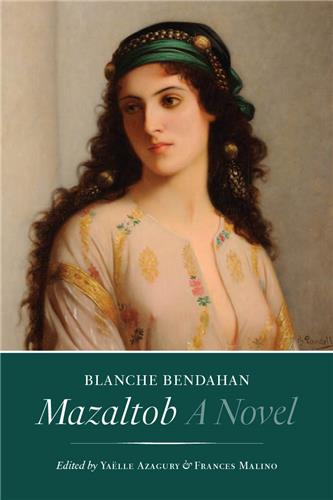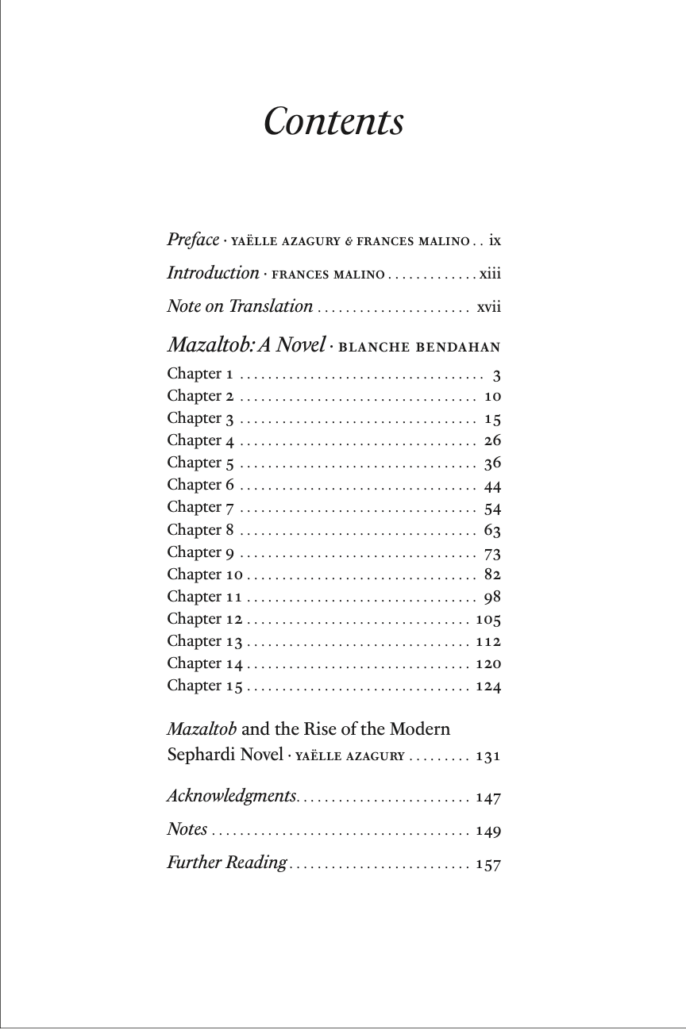"Mazaltob" is a fascinating portrait of a young Moroccan Sephardi woman as she navigates the ever-shifting ground between tradition and modernity, East and West, self and other, obligation and desire. Stylistically bold, culturally rich, by turns comic and wrenching, this polyphonic novel is both historically important and, in its new translation, a gift for our current times.





